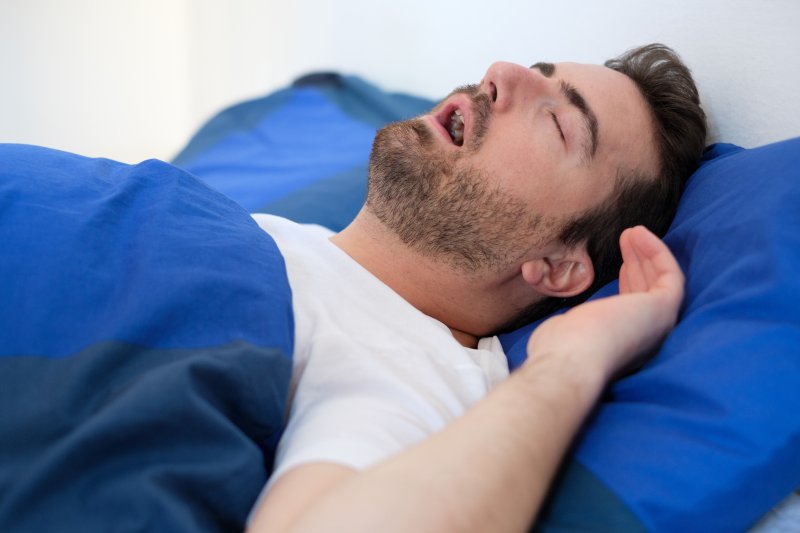Is Sleep Apnea Genetic?
September 13, 2022

Sleep apnea is a common disorder that affects millions of Americans every year. It causes you to repeatedly stop breathing while they sleep. Not only does it negatively impact your quality of rest, but it can increase the risk of other health problems (i.e., heart attack or stroke). Because of that, many people are curious about whether or not genetics can increase your risk. In this blog post, you’ll learn what you need to know about if sleep apnea can be hereditary.
Is Sleep Apnea Genetic?
There are genetic factors that may contribute to a person’s likelihood of developing obstructive sleep apnea (OSA). It’s a type of sleep apnea in which lapses in breathing are caused by physical airway blockages. Studies have revealed that people face a greater risk of developing the disorder if they have a close family member with it.
Let’s take a look at a few ways genetics may predispose you to sleep apnea:
- Body Fat Amount and Distribution: Genes affect body weight and where fat is located on the body, which both influence whether or not you develop sleep apnea.
- Face Anatomy: Genes affect the shape of your face, skull, and nose. As a result, this can impact how wide the airway is and how easily it can become blocked.
- Breathing Control: Experts suggest genetics could influence the muscles and neural signals involved in breathing.
- Sleep and Circadian Rhythm: Lastly, genes can influence your innate sleep schedule along with how well you sleep and whether or not you have other sleep disorders.
What Causes Sleep Apnea?
Unfortunately, the causes of sleep apnea are often complex. It’s often the result of a combination of genetic, health, and lifestyle factors. While the risk factors vary depending on the type of sleep apnea and the age at which it develops, here are a few common ones:
- Obesity
- Body type
- Face anatomy
- Sex
- Age
- Race and ethnicity
Signs of Sleep Apnea
Chronic loud snoring is one of the hallmark symptoms of sleep apnea. For that reason, your partner or roommate may be the first one to notice it. Some other common signs of sleep apnea include:
- Daytime fatigue
- Morning headaches
- Irritability
- Choking or gasping in your sleep
- Memory loss
- Difficulty concentrating
- Frequent waking throughout the night
If you’re showing any of the symptoms listed above, don’t hesitate to make an appointment with your doctor. They’ll confirm a sleep apnea diagnosis and get you the treatment you need for better rest.
About the Practice
At Dolfield Dental, we offer high-quality, comprehensive, and personalized services. Our goal is to help all patients achieve excellent health and a better overall quality of life. If you think you may suffer from sleep apnea, don’t hesitate to reach out for a study. You can make an appointment via our website or call (410) 902-4110.
No Comments
No comments yet.
RSS feed for comments on this post.
Sorry, the comment form is closed at this time.
